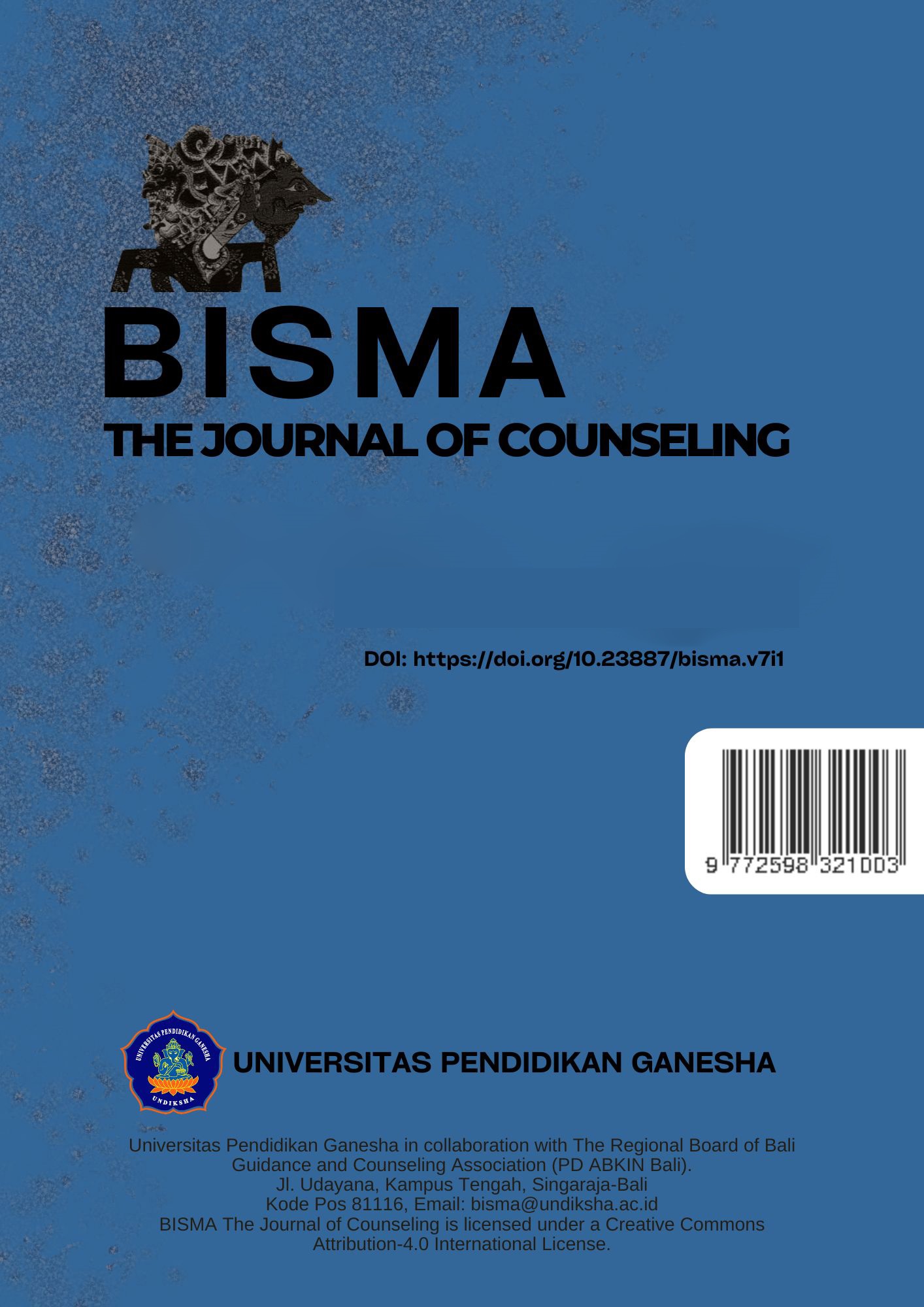The Effectiveness of Six-Thinking Hats Group Counseling in Enhancing Students’ Problem-Solving Skills
DOI:
https://doi.org/10.23887/bisma.v8i3.87155Keywords:
Guidance, Problem Solving, Thinking HatsAbstract
Problem-solving skills are among the essential soft skills required by students to address the challenges of today’s society. These skills not only help students make critical decisions but also foster the development of positive behavior. This study aims to analyze the impact of group counseling using the six-thinking hats method on students’ problem-solving skills. The research employed a quantitative approach with a one-group pretest-posttest experimental design. Data were obtained from pretest and posttest scores measured using a Problem-Solving Skills Questionnaire comprising 30 items. The study sample consisted of 9 students selected through purposive sampling techniques. Data analysis was conducted using the Wilcoxon nonparametric statistical test. The results showed a Z-score of -2.668b and an Asymp. Sig. (2-tailed) value of 0.008 (< 0.05), indicating a significant effect of group counseling based on the six-thinking hats method on improving students' problem-solving skills. These findings provide valuable contributions to guidance and counseling (GC) teachers seeking to enhance students’ problem-solving skills through innovative approaches. This research also opens avenues for further studies with larger sample sizes to improve the generalizability of the findings.
Published
Issue
Section
License
Copyright (c) 2024 Ni Made Diah Padmi, Nazwa Manurung, Nisa Ariantini

This work is licensed under a Creative Commons Attribution 4.0 International License.








